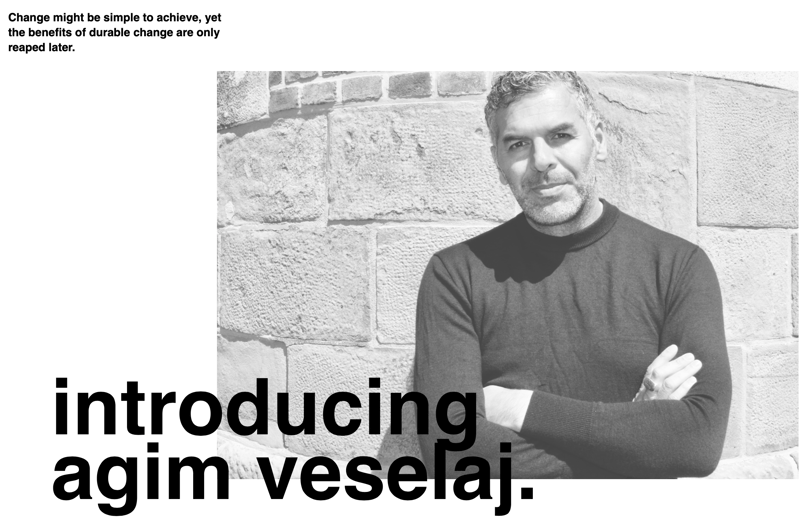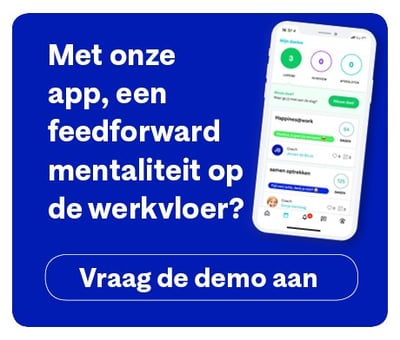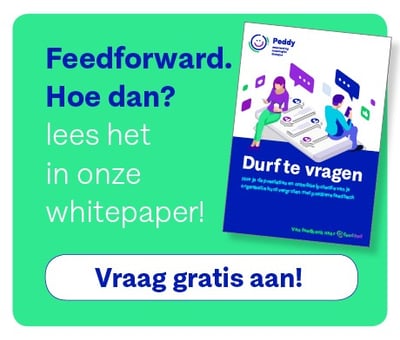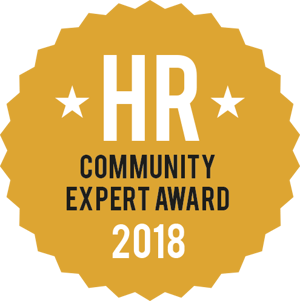
Ever since B. opened her second B. Amsterdam building, our ecosystem has been a hotspot for HR Tech. Agim Veselaj, CTO and co-founder of Peddy, tries to revolutionize performance management. Peddy is a philosophy captured in a tool that allows businesses to radically improve their performance reviews. But Peddy is more than your normal disruptive technology. It is your ‘buddy’ that promises to help businesses align their goals and objective, not just once or twice a year but continuously and without interruption.
Could you tell us what Peddy exactly is?
Peddy is a philosophy which we translated into a tool. It thus combines theory and practice. Although not coming from a HR-background myself, I was dissatisfied with the way assessment interviews were held. Only once a year, every employee talks with someone from management and more than once both parties leave with a feeling that the talk served little purpose. Certain goals for the upcoming year are discussed, yet these are only reviewed one year later – in case both parties still remember what the original goals were. It is not uncommon that assessments only review the previous month. That is a huge loss of potential!
We developed a 360-degree feedback tool that sets objectives which puts all employees of a company, including management, in a constant loop with one another. We actually prefer to talk about feedforward instead of feedback, as the tool should motivate employees to set goals themselves and ask for tips to move forward. What is more, via the tool you’re not only in contact with your lead or manager, but also with your fellow employees. Often, they can help you better with certain objectives than those higher in hierarchy. And receiving feedback from them has lower threshold. So you have the task yourself to approach your environment to help you get better.
Ideally, you’re in a constant loop instead of only once a year. You can only make a goal in Peddy with another person to ensure there is enough peer pressure to take your goal serious. So you could see Peddy as your buddy at work.
That seems like a huge change in HR-management. How do you introduce that change to hesitant parties?
Peddy is all positive about that change. One of the slogans you’ll see on our website, is ‘performance management with a smile’. We want to approach people positively. With the tool, it is you who asks for feedback. It is not possible to give unsolicited feedback with Peddy. Compliments, however, are unlimited. The whole tool works from the idea that you already wish to change. The underlying assumption is, that is only you yourself are able to make you happy – not your work, your house or even your spouse.
Change remains a difficult issue however. It differs from company to company how open they are to change old processes for something fresh and new. One argument that really seems to make it, is that the current focus of performance management is rather negative. Most attention goes to those colleagues that somehow cause problems, but they are always in the absolute minority. In order not to forget those who are good at what they do and happy with where they are, Peddy is a buddy to all – regardless of the challenges they meet on the floor.
Did you already bring change to business?
Most important is the attitude of management. As long as the managers are open to change internal assessments positively, miles can be made in a relatively short amount of time. But when you notice a climate of fear, it is truly difficult to build rapport for change.
What was the biggest challenge in setting up Peddy?
To gauge how much support there actually is for our idea out there. We did some market research upfront, but we consciously decided to not make this our sole focus. We both do not have an HR-background but felt we sat on a fantastic idea. That’s when we decided to invest all we have to get this started and make other businesses as enthusiastic as we were. In the end, the idea sold itself. To get people interested was not the problem, but the actual implementation of the changes we envision… That is a challenge for all parties.
You need at least nine months to one year to reap the benefits of all Peddy offers. Which is compared to an assessment review once a year not that big a time schedule. Yet we live in a time in which people wish to see benefits almost the second after they said yes. Change might be simple to achieve, yet the benefits of durable change are only reaped later.
What purpose has Peddy this year?
Until now, we’ve been developing our product to make it as perfect as possible. For example, we’ve worked on a new method of performance management. However important it is to set goals yourself and work together with your colleagues to achieve them, we did not wish to cancel out a moment of performance review itself. That would complete the cycle of Peddy. Most companies start those reviews in October, so we plan to finish this new method by then this year.
The other challenge is to work on Peddy’s publicity, for which we are currently working on a marketing strategy.
How does B. support your start-up in all those challenges?
Until January, we just had some desks in the co-work space of B. Since then, we moved forward to our own office – it is small but very cosy. By far the largest part of our actual product was made here, with the help of fellow co-workers. The guys of Empatiko were great conversation partners, who believe that the quality of relationships determines the success of an organization. In the beginning, we also had contact with Healthy Workers, who work on tools to actually measure the wellbeing of employees. And before I forget, on June 25, from 9am till 11pm, we organize an event at B. about our new HR-tech-driven performance management. Save your seat on our website!
What advice would you give to future start-ups?
If you believe in something and your feeling agrees with you, go for it. Even if you make mistakes, there is no need to fret about it and question your gut feeling. Just make sure you learn from those mistakes and keep moving forward.
How do you ensure your personal growth?
I love to listen to audio books, preferably about start-ups. You learn about people and companies who took amazing creative decisions and changed lives with that. But I learn the most from feedforward talks with my companions. Just ask them if they have any tips for you or what they think you could do better. It is so important to create this open atmosphere, in all relationships you have.


